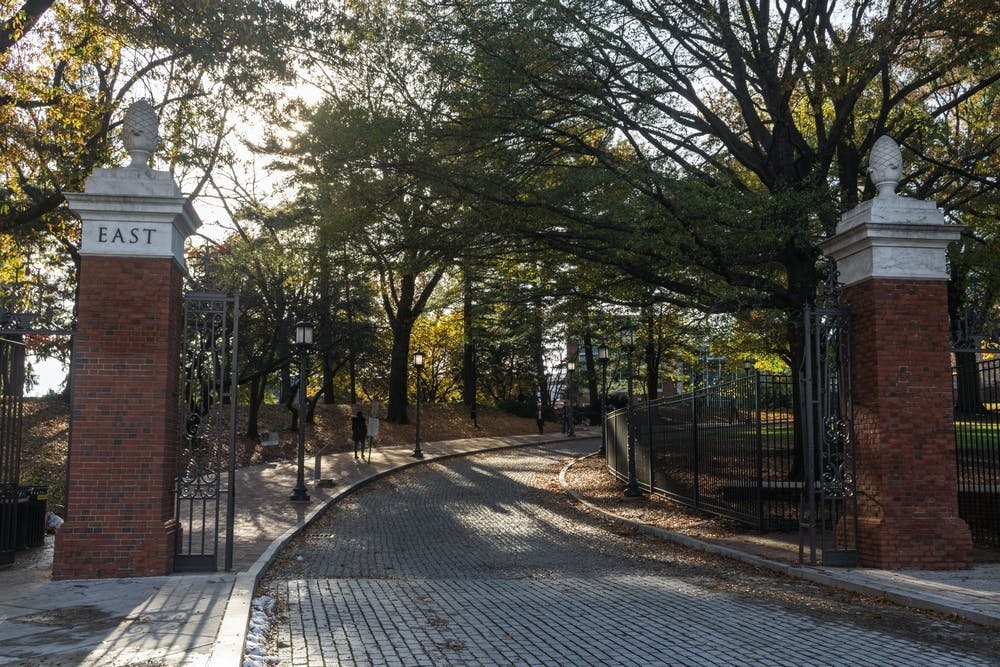The University’s 2020 Research Workgroup held its third virtual town hall on May 29 to discuss plans for the fall semester. The event built on the information shared in the previous town halls concerning the guidelines for reopening campus for researchers.
Heidi Conway, vice president of human resources; Andrew Douglas, vice provost for faculty affairs; Jon Links, vice provost and chief risk and compliance officer; and Bob McLean, vice president for facilities and real estate, discussed maintaining an inclusive workplace, altering staffing and scheduling plans, social distancing and universal mask coverage. The University will be providing employment and educational support for any staff that may be affected by furloughs or reductions in force.
Rising sophomore Breanna Soldatelli supported the University’s proposals in an interview with The News-Letter. However, she shared her disappointment with the University’s progress.
“I agree with the safety precautions in place and, as a public health school, Johns Hopkins is being cautious,” Soldatelli said. “I don’t think the town halls make a large impact, at least not as much as actually surveying student opinion would... We’re sick of the same emails rephrasing what has been said. Our futures are uncertain as of this point, and we don’t want platitudes. We want information.”
According to Links, the University’s three-phase plan will mirror Baltimore City’s own plan for reopening but will also be influenced by the University’s decisions on what is deemed appropriate. He emphasized that masking, distancing and hygiene continue to be the chief safety measures as the University plans to move into Phase One, which he anticipates will begin no earlier than mid-June.
The guidelines and protocols that the University is designing will be mandatory for everyone and known as “workplace adjustments.” Conway emphasized that any concerns or circumstances that students, faculty and staff may have when returning to campus will be worked through in a confidential manner.
“To be clear about the two pathways: One is concern for yourself through institutional equity, and the second is concern for a close family member that you have exposure to on a regular basis,” Conway said.
McLean discussed the findings of the Workgroup for Facilities & Health, Safety and Environment. They developed many recommendations, including universal masking, which will require masking at all times with very few exceptions. They plan to provide two face coverings for each individual that returns to campus.
“We wanted a very clear and simple consistent guideline that does not leave a lot to the imagination. We wanted to be very considerate and conservative during our initial steps,” McLean said.
He shared that social distancing is another major consideration in allowing limited research on campus. Initial guidelines would be 400 gross square feet per researcher. The University also plans to reformat common rooms to comply with six-feet social distancing and will limit a maximum of four people to an elevator.
An important factor of the public health guidelines is mass testing. Links explains that the University's goal is to set a procedure for mass testing in a high-density environment. Hopkins will also continue to conduct contact tracing to identify all potentially infected individuals right away.
“It is possible that doing a lot of daily testing on persons with and without symptoms could help rapidly identify those who have the virus asymptomatically to remove them from campus and complement masking, distancing and hygiene,” Links said.
The University is also considering using technology to monitor density and symptoms. This will aid in digital contact tracing.
In an email to The News-Letter, Douglas shared that he was satisfied with the turnout of the event, which garnered about 2,400 attendees and 150 questions.
“The Town Halls have both informed those planning for Phases 1 and 2 and have provided information for the JHU community,” Douglas wrote. “The feedback and questions have sharpened our planning and informed our resource allocation.”





